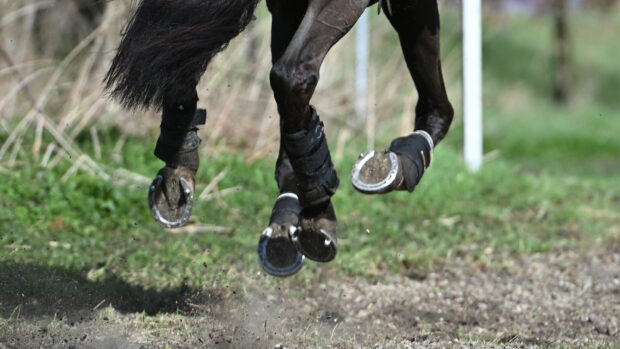Clarification has been provided for UK horse owners on vaccinating for equine herpes virus (EHV).
Following concerns raised on social media, H&H sought guidance from the British Equine Veterinary Association (BEVA) on whether owners should be considering vaccinating their horses against the disease.
David Rendle, chair of BEVA’s health and medicines committee, told H&H the topic of vaccination is raised every time there is media coverage of the neurological strain of the virus.
“Unfortunately this is shutting the stable door after the horse has bolted,” he said. “The EHV vaccine that is registered in the UK was developed for the prevention of abortion rather than the respiratory or neurological forms of the disease.
“However, use of the vaccine is likely to reduce EHV infections generally and reduce the amount of virus that is transmitted between horses; in so doing it reduces the risk to the population generally and may reduce the risk of the neurological form of the disease in individual horses.”
There is currently no vaccine registered for use to prevent the neurological strain.
“In some studies of neurological herpes, recent (within a few weeks) vaccination has paradoxically increased the risk of disease developing. The additional immune response generated by the vaccine may trigger neurological disease in horses that have already mounted a response to natural infection,“ said Mr Rendle.
“Vaccination is therefore not recommended in the event of an outbreak of neurological herpes. As with all diseases, vaccination needs to be used as a preventive measure in advance of a disease outbreak and not be a knee-jerk response in the event of disease.”
Mr Rendle said EHV vaccination is performed in most broodmares, competition horses, racehorses, and is mandatory for racehorses in France.
“The risk of disease associated with EHV would be lower if more horse owners vaccinated for it. Historically the rate of vaccination in the UK has been relatively low and the manufacturers produce the vaccine in accordance with that demand,” he said.
“Recent events in Europe have increased vaccine demand exponentially such that vaccine supplies have been used up and as of this week EHV vaccine has become temporarily unavailable. Attempts have been made to reserve stocks for broodmares in order to prevent outbreaks of abortion.”
Mr Rendle added that when the vaccine becomes available again, owners may wish to plan ahead and consider vaccination.
“EHV is ever-present and there is absolutely no doubt that there will be further outbreaks of disease resulting in respiratory disease, abortion and paralysis,” he said.
“Recent events in Spain have highlighted the risks of infectious disease associated with moving and mixing large numbers of horses so owners of competition horses especially should think about measures they can take to maximise biosecurity and reduce these risks.”
For competition horses, on 2 March British Showjumping (BS) “strongly advised” riders not to travel to European competitions while the outbreak remains active. On 12 March the FEI extended the suspension of international European shows until 11 April – and national events remain off in many European countries.
The BS spokesman said it is “essential” vaccination is not considered as a means to “overcome sub-optimal” biosecurity.
“Avoiding mixing in at-risk populations, close monitoring, early diagnosis and isolation of suspect horses remain the cornerstones of prevention regardless of vaccination status,” said the spokesman.
Article continued below…

‘Minimal risk’ of EHV-1 spread in the UK but riders urged to act ‘responsibly’
“This episode serves as a reminder of the importance of biosecurity, vaccination and having plans in place for protecting horses

Equine herpes virus – all you need to know right now

Subscribe to Horse & Hound magazine today – and enjoy unlimited website access all year round
“As it is unclear how long the outbreak will remain active in Europe, we are not currently recommending vaccination for horses which are scheduled to travel to Europe in the next few weeks. BS will continue to advise its members as the European outbreak progresses.”
The spokesman added that EHV is endemic in Europe, so it will be an ongoing threat after the current outbreak is over.
“Therefore, we advise EHV vaccination for horses travelling to Europe this summer and beyond,” he said. “For horses to remain protected it is important that once the primary course has been given, vaccination should be continued in future with boosters required every six months.”
Horse & Hound magazine, out every Thursday, is packed with all the latest news and reports, as well as interviews, specials, nostalgia, vet and training advice. Find how you can enjoy the magazine delivered to your door every week, plus options to upgrade to access our H&H Plus online service which brings you breaking news as it happens as well as other benefits.




